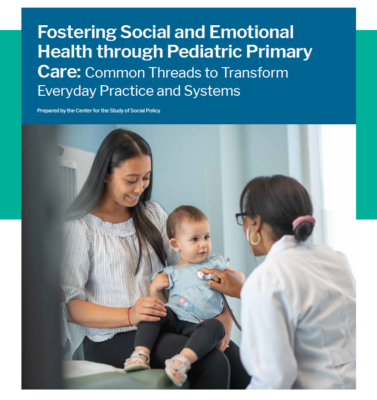Guide to Leveraging Opportunities Between Title V and Medicaid for Promoting Social-Emotional Development

The Pediatrics Supporting Parents (PSP) Initiative is focused on cultivating healthy social-emotional development in our country’s youngest, most vulnerable children; valuing the central role parents play in that development; and seizing the opportunity for pediatricians to better support parents in this role. The Center for the Study of Social Policy (CSSP) and Johnson Group Consulting, Inc. were asked to develop this guide to support state-level planning, action, and innovation aligned with the goals of the PSP initiative. The guide uses a framework for action across a continuum that stretches from promotion to screening to prevention to early intervention and treatment. The specific policy, program, and practice opportunities included for state Title V Maternal and Child Health Services programs, by state Medicaid agencies, and by the authors are based on existing state innovations, research on how to promote social-emotional development, and federal law. CSSP also partnered with Family Voices to ensure that the perspectives of families informed the guide.

Three Directions for Change
Major opportunities for change and improvement exist in three directions: (1) expanding efforts in pediatric primary care to promote social-emotional development and relational health; (2) applying strategies used to support medical homes for children with special health care needs to advance high-performing medical homes for young children; and (3) focusing infant and early childhood mental health efforts to include more promotion and prevention efforts linked to primary care, in addition to treatment and consultation for those with identified conditions. Such changes will require action by state agencies, health plans, providers, and programs to support families. All should be undertaken with intentional efforts to advance equity, reduce provider bias, and eliminate the disparities driven by racism. Every state has the potential to improve the finance and delivery of pediatric primary care to better support parents and improve social-emotional development in ways that have lifelong impact.





